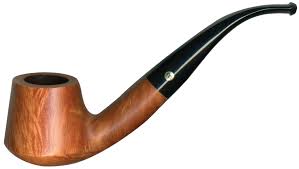pipe
英 [paɪp]
美 [paɪp]
- n. 管;烟斗;笛
- vi. 吹笛;尖叫
- vt. 用管道输送;尖声唱;用管乐器演奏
- n. (Pipe)人名;(匈)皮佩;(英)派普
使用频率:

中文词源
pipe 管子,管道,管乐器
来自拉丁语pipare,管子发出的叽叽声,砰砰声,拟声词。引申词义管子,管道,管乐器等。
英语词源
- pipe
-
pipe: [OE] The etymological notion underlying pipe is of a ‘piping’ sound. The word goes back to a Common Romance *pīpa, a derivative of the Latin verb pīpāre ‘chirp’. This was formed from the base *pīp-, imitative of the sounds made by young birds, which also lies behind English pigeon. Prehistoric Germanic took over *pīpa, and it has since evolved to German pfeife, Dutch pijp, Swedish pipa, and English pipe. By the time it reached English it had broadened out semantically from its original ‘tubular wind instrument which makes a piping sound’ to ‘tube’ in general.
=> pigeon - pipe (v.)
- Old English pipian "to play on a pipe," from Latin pipare "to peep, chirp" (see pipe (n.1)). Compare Dutch pijpen, German pfeifen. Meaning "convey through pipes" is first recorded 1887. Related: Piped; piping. Piping hot is in Chaucer, a reference to hissing of food in a frying pan; to pipe up (early 15c.) originally meant "to begin to play" (on a musical instrument); sense of "to speak out" is from 1856. Pipe down "be quiet" is from 1900, probably a reversal of this, but earlier (and concurrently) in nautical jargon it was a bo'sun's whistle signal to dismiss the men from duty (1833).
- pipe (n.1)
- Old English pipe "musical wind instrument," also "tube to convey water," from Vulgar Latin *pipa "a pipe, tube-shaped musical instrument" (source also of Italian pipa, French pipe, Old Frisian pipe, German Pfeife, Danish pibe, Swedish pipa, Dutch pijp), a back-formation from Latin pipare "to chirp or peep," of imitative origin. All tubular senses ultimately derive from "small reed, whistle." Meaning "device for smoking" first recorded 1590s. Pipe-bomb attested from 1960. Pipe-cleaner recorded from 1863.
- pipe (n.2)
- type of cask, early 14c., from Old French pipe "liquid measure, cask for wine," from a special use of Vulgar Latin *pipa "pipe" (see pipe (n.1)).
权威例句
- 1. Just pipe down and I'll tell you what I want.
- 别说了,我来告诉你我想要什么。
- 2. You could waste your whole life on a pipe-dream.
- 白日梦会荒废你一生。
- 3. He nodded and puffed on a stubby pipe as he listened.
- 他边听边点头,还吸着一支粗短的烟斗。
- 4. He took a puff on his pipe and shook his head.
- 他抽了口烟斗,摇了摇头。
- 5. The room held the faint, sweet odour of pipe tobacco.
- 房间内有烟斗烟丝的淡淡馨香。
